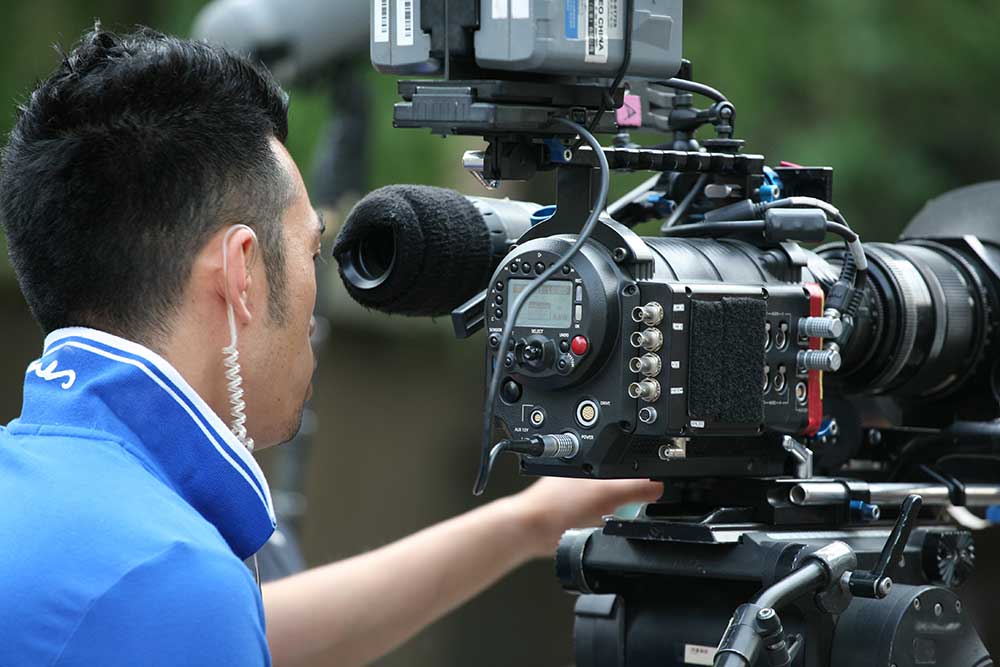Disclaimer: The information on our website is provided for general information purposes only. We make no representations or warranties of any kind, express or implied, about the completeness, accuracy, reliability, suitability or availability with respect to the website or the information contained on our website for any purpose. Any reliance on such information is therefore strictly at your own risk and we are not liable for any damages or losses arising out of or resulting from your reliance on any information contained on our website.
Camera operators are the ones behind the scenes operating film or video cameras to capture footage for televisions shows, commercials, documentaries, events, and film. Many camera operators specialize in shooting footage for a specific industry, such as those working in the film industry or those working for an advertising firm shooting commercials. Watch a video to learn what a camera operator does:
How to Become a Camera Operator
There is no minimum requirement to become a camera operator, though a bachelor’s degree may be necessary to gain an entry level position. If you do not have experience, employers will look for applicants with a formal education in a related field such as broadcasting or film. If a camera operator is already in the field and has experience, they may not need to show a formal education as they may have built a reputation. According to O*NET OnLine, over 60% of camera operators surveyed reported having at least an associate’s degree or bachelor’s degree.
Job Description of a Camera Operator

Camera operators shoot footage with television or motion picture cameras to capture scenes for a director. They would need to be knowledgable in composition and lighting techniques to ensure the angle, lighting, and story of the scene is conveyed as intended. They would also use various lenses and filters when necessary to accurately capture the moment.
Camera operators work closely with others on the project such as directors, sound technicians, and lighting personnel as these all aspects must come together when it’s time to shoot. If there is movement to the shot, they may also need to plan out how their camera will move with the subject in order to produce a high-quality shot. Some camera operators also edit the footage for the project after the camera shoot.
Camera Operators Career Video Transcript
Whether it’s the silver screen of 1950s Hollywood or the computer screen and YouTube of today, Americans have long carried a torch for moving pictures. When the director yells “Action” the camera operator’s eyes are glued to the camera’s lens, making sure to catch everything. There are three main types of camera operators.
Studio camera operators work in broadcasting and follow directions as part of an ensemble production. They film their subjects from a fixed position. Cinematographers film motion pictures. They determine the angles, lighting, and types of equipment that will best capture a shot.
Videographers may shoot special events, such as weddings, or work with companies to make corporate documentaries. They typically edit their footage for clients. Many videographers run their own businesses or do freelance work. Most camera operators work full-time schedules, but may have long, irregular hours while filming. Like anyone in the movie industry, once filming wraps there’s no guarantee when the next opportunity will come along.
Camera operators may have to stand for long periods, and they may carry heavy equipment wherever production happens, which could be an office or a remote setting. Camera operators must be creative, detail-oriented, and effective communicators. Camera operators typically need a bachelor’s degree in a field related to film or broadcasting, such as communications.
Article Citations
Bureau of Labor Statistics, U.S. Department of Labor, Occupational Outlook Handbook, Film and Video Editors and Camera Operators.
National Center for O*NET Development. 27-4031.00. O*NET OnLine.
The career video is Public Domain from the U. S. Department of Labor, Employment and Training Administration.

